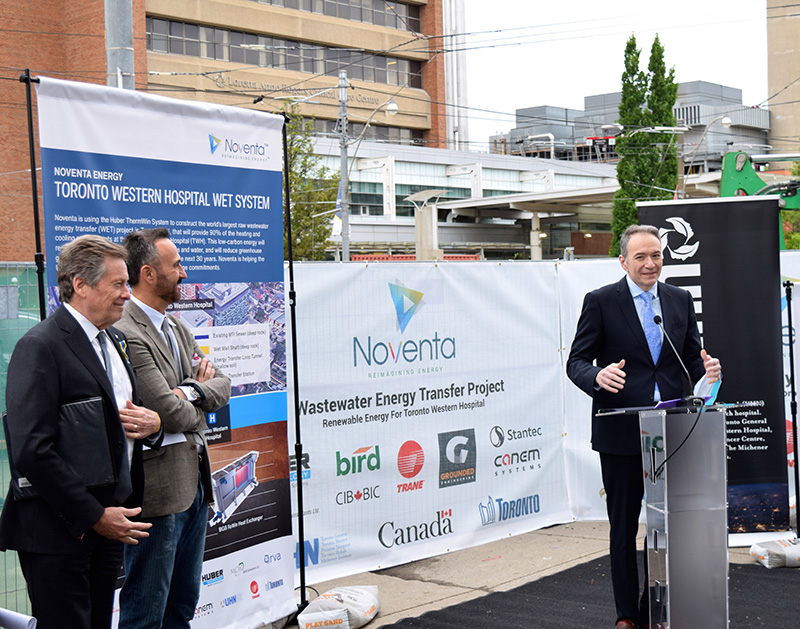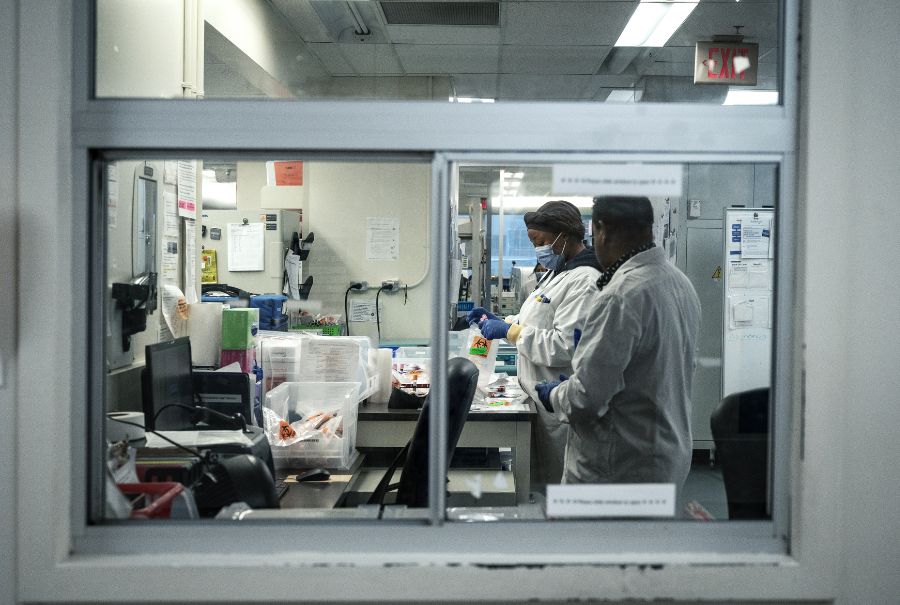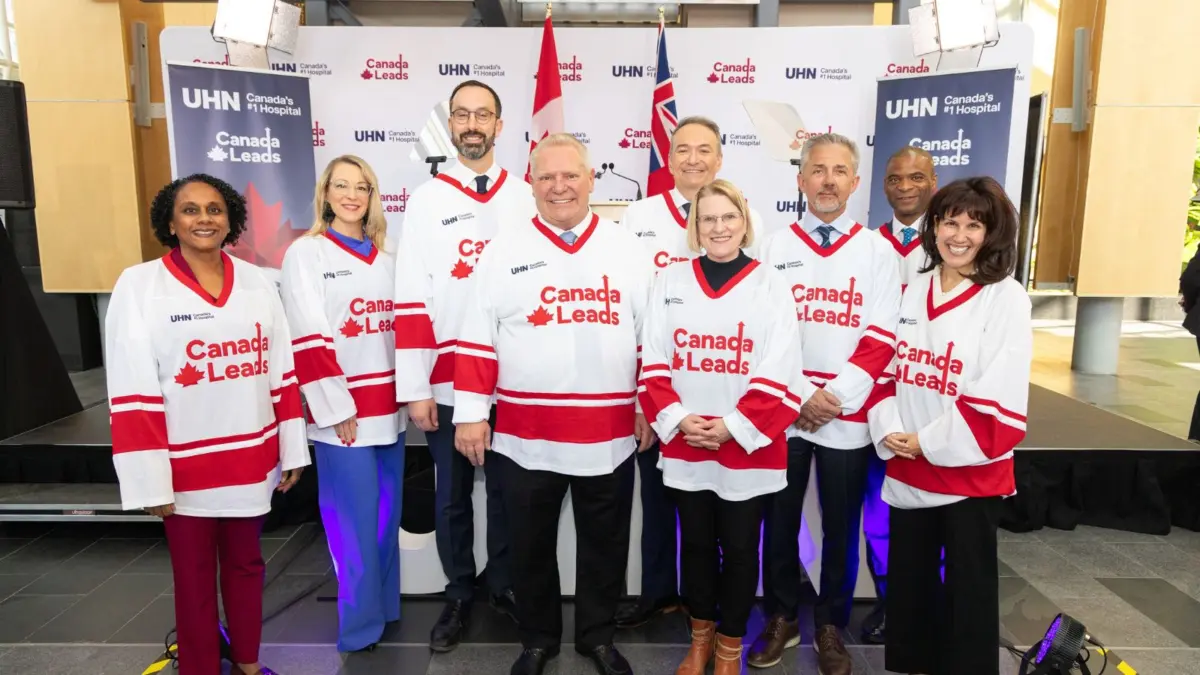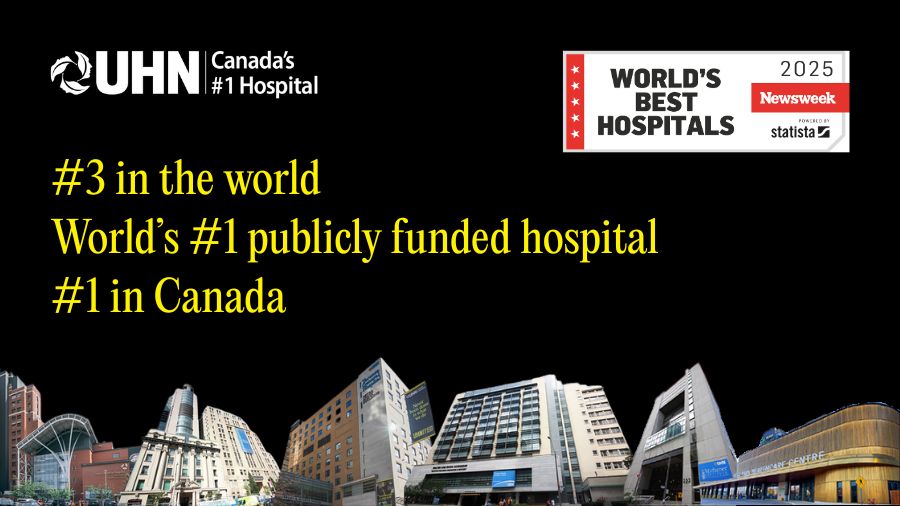Celebrating the groundbreaking of the WET system at Toronto Western Hospital, (L to R), Jim Sanders, Senior VP with Enbridge Gas, Ehren Cory, CEO of Canada Infrastructure Bank, Toronto Mayor John Tory, Dr. Kevin Smith, President & CEO of University Health Network (UHN), Dennis Fotinos, CEO Noventa Energy, Toronto City Councillor Mike Layton, Matt Cronin, VP of Bird Construction, Stephen Condie, COO Noventa Energy, and Lou Di Geroimo, General Manager, Toronto Water. (Photo: UHN)
UHN broke ground Monday on the world’s largest raw wastewater energy transfer (WET) system, bringing Toronto Western Hospital (TWH) one step closer to reducing its carbon emissions by the equivalent of more than 1,800 cars a year.
Toronto Mayor John Tory, renewable energy company Noventa Energy Partners, UHN, Canada Infrastructure Bank, Vancity Community Investment Bank (VCIB) and Enbridge Gas were at the groundbreaking event to celebrate the start of construction on the innovative project.
The WET System will use thermal energy from wastewater flowing through a nearby municipal sewer to supply up to 90 per cent of the hospital’s heating and cooling needs, significantly reducing use of existing electric and natural gas systems.
As a result, the site’s direct greenhouse gas emissions will be reduced by about 10,000 metric tonnes each year – more than 60 per cent of UHN’s overall direct emissions and the equivalent of removing 1,811 cars from the road.

“At University Health Network, we know climate change is a major threat to health,” Kevin Smith, UHN President & CEO, said at the event across the street from TWH and in front of the Toronto Public Library where crews have begun digging the wetwell that will access wastewater from the sewer below.
“Today’s groundbreaking is a major milestone that furthers our commitment in delivering A Healthier World – through a sustainable environment.”
Mayor Tory called the project “a great initiative that focuses on the need to address climate change in our everyday lives and the effort needed by both the private and public sector to work together to address the impacts of climate change.
“My hope is that the success of this project will see us implementing similar technologies and initiatives across the city as we continue to meet our climate change goals,” he said.
Construction crews – lead by Noventa and UHN’s Facilities Management – Planning, Redevelopment & Operations (FM-PRO) Department – will continue to dig the wetwell so it’s 35-feet in diameter and 165 feet deep. They will then install the WET System that separates solids at the sewer level, allowing only sieved wastewater to be pumped up and into sealed, self-cleaning heat exchangers, before it provides heating and cooling to the hospital.
Ron Swail, UHN’s Vice President of FM-PRO, said the project is a “natural fit” for the organization.
“We have a strong culture of sustainability, thanks to the tremendous efforts of our Energy & Environment team, who have helped us become a top energy performer among our peers,” he said. “Over the past decade, the team has completed 340 energy projects, which has already reduced greenhouse gas emissions by more than 25 per cent.
“We’re excited to add the WET system to the roster.”
Over the next 30 years, Noventa’s WET System is expected to:
- Supply 90 per cent of TWH’s heating and cooling requirements
- Reduce the hospital’s carbon dioxide emissions by 250,000 tonnes – the equivalent of taking more than 1,800 cars off the road each year
- Save more than 141 million kilowatt-hours of electricity, 130 million cubic meters of natural gas and 1.3 billion litres of cooling water (the equivalent of 520 Olympic-sized swimming pools)
- Provide easy access to wastewater samples, opening up a variety of potential health research opportunities for UHN, including anti-microbial resistance and monitoring for pandemics
This project is made possible by the financial support of many partners; the Government of Canada, the Canada Infrastructure Bank, VanCity Bank, Enbridge Gas Inc., University Health Network (UHN) and Noventa.


